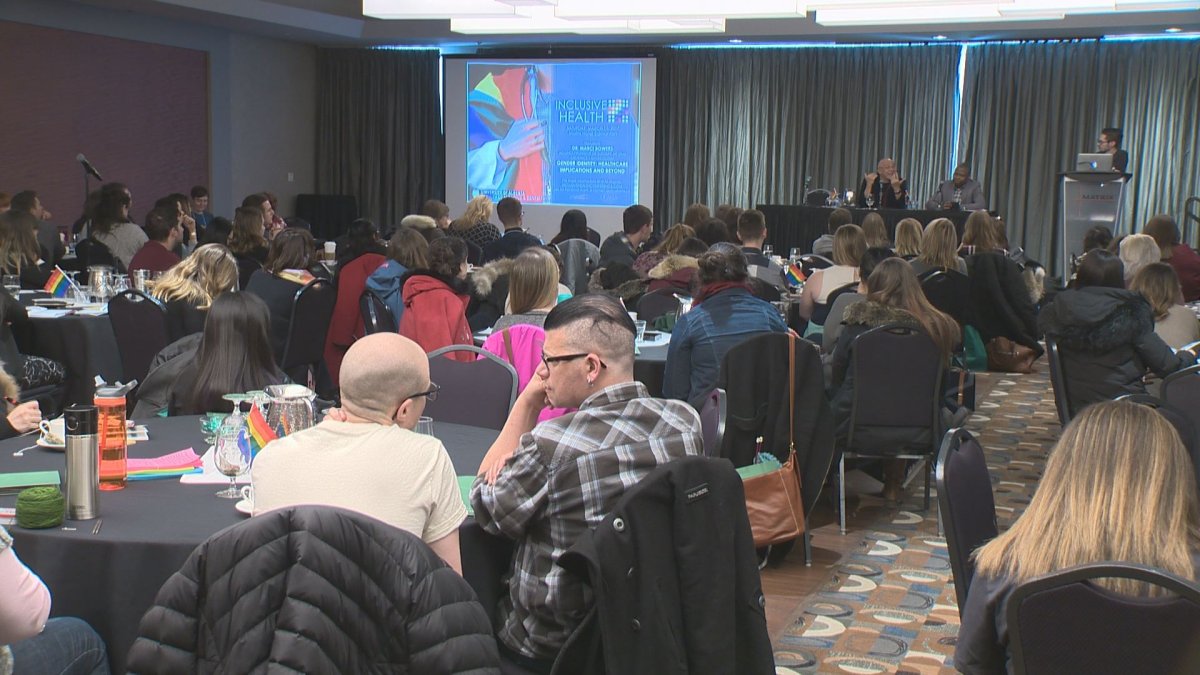A unique conference is taking place in Edmonton this weekend, one that aims to teach health care providers how to better understand and respond to the health care needs of people who identify as lesbian, gay, bisexual, transgender and queer.

“We’ve found that medical schools and other health care professionals don’t really learn enough about how to provide competent care for sexual and gender minorities or LGBTQ people,” said Derek Fehr, a second-year medical student who is also part of the Sexuality and Gender Advocacy Initiative.
“The medical school curriculum has been lacking, so we decided to start this conference so we could get physicians and professionals learning what they need to know to provide good care and addressing a lot of the health disparities we see,” Fehr said.
The one-day event was held Saturday at the Matrix Hotel. The conference began four years ago and has grown steadily to see about 200 students and health professionals attending annually.
Fehr said sexual and gender minorities can often face serious mental health issues.
Fehr added that changing attitudes is key: “If people have negative stereotypes [and] misconceptions about LGBTQ people, that’s going to impact how they provide care and how they communicate.”
Fehr said there is a medical knowledge and terminology that needs to be applied to the LGBTQ community.
“Things like knowing about hormone replacement therapy, referrals for gender-affirming surgery, and most importantly what every health care professional needs to know is how to communicate effectively. Compassionate care, not stereotypes, not saying things that could be unintentionally offensive when referring to sexual and gender minorities, because that’s what contributes to that ongoing stigma and discrimination that people experience.”
Fehr also underlined the importance of good communication: “that takes practice to ask questions in ways that don’t have those underlying biases.”
Fehr said since the seminar began, the University of Alberta’s Faculty of Medicine has become interested in adopting changes to the curriculum.
“The faculty… has been incredibly responsive,” Fehr said. “Now we’ve started to see a lot of interest building within the Faculty, so we’re really excited to see some of those changes.”
Fehr hoped those attending the conference would leave with a greater sense of appreciation for the diverse needs of the LGBTQ community.
“There’s no ‘one size fits all.’ The LGBTQ community isn’t one thing — there’s so much diversity within it, so the importance of asking questions and personalizing your approach [is key]; really looking at the person in front of you as an individual.”


Comments